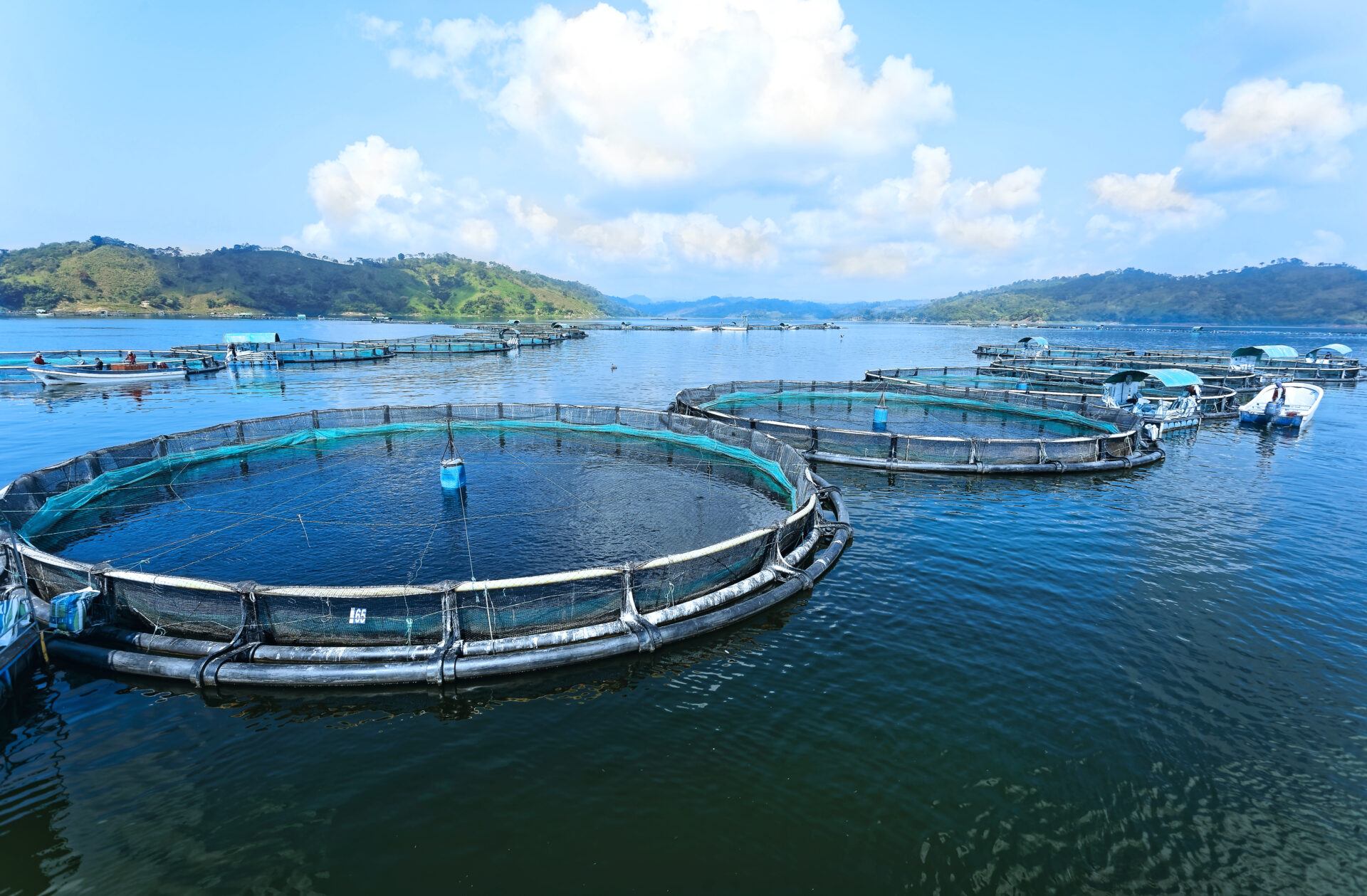The evolution of aquaculture: what does the future hold?
Thanks to their high protein content, nutritional value, and widespread availability, people are eating more aquatic foods than ever before.
However, in the wake of climate change and increased biodiversity loss, the future of the seafood industry is under threat. As a result, governments and world health organizations have called for urgent transformation across our aquatic food systems to protect natural resources and provide food security and employment for millions of people worldwide.
Aquaculture plays a significant part in achieving this goal. According to “The State of World Fisheries and Aquaculture: Towards Blue Transformation” report by the FAO, global production reached a record 122.6 million tonnes in 2020 — contributing an impressive 49.2% to the production of aquatic animals and making it an increasingly crucial link in the food supply chain.
So, what makes aquaculture so vital for securing world food supplies — and why must producers ensure they meet increasing demands while maintaining high standards of quality and sustainability?
Driving forces behind the aquaculture swell
“Blue foods” — fish, shellfish, marine plants, and algae — have a pivotal role in the global food supply chain, with the FAO’s report finding that aquatic foods provide at least 20% of the average per capita animal protein intake for 3.3 billion people.
As a result, countries worldwide are committed to strengthening marine food systems to tackle two huge problems: climate change and food insecurity.
Climate change is already a major threat to marine ecosystems, with overfishing and pollution leading to habitat degradation and the depletion of essential fish stocks. This is disastrous for people worldwide, especially coastal communities that rely on seafood for their diets and livelihoods — adding to the 49 million individuals at risk of famine or hunger crisis.
Fortunately, aquaculture has the potential to mitigate these concerns.
Fed fish species are a planet-friendly, healthy alternative to land-farmed meats, offering a reliable source of omega-3s, vitamins D and B12, selenium, iodine, iron, calcium, and zinc — all of which are beneficial for human health.
By following frameworks and policies for the technical and logistical development of sustainable fish farming, aquaculture producers can help rebuild overfished stocks and increase fisheries production by an estimated 16.5 million tonnes, contributing to widespread economic growth and improvements to public well-being.
However, this progress is contingent on the availability of high-quality seafood products. With mass production and poor environmental management still posing problems for the industry, some seafood contains microplastics, pesticides, metals, and other pollutants — creating biological hazards such as toxins, allergens, parasites, and viruses.
These issues have the potential to stunt the development of the aquaculture industry at a time when it’s needed most. As a result, established producers must lead by example by developing future-proof fish farming practices — an expectation Regal Springs meets as an ASC, BAP-certified leader in responsible aquaculture…
Leading the way with sustainable seafood
As populations grow and the demand for sustainable seafood outstrips supply, preserving marine ecosystems and ensuring only quality products enter the food chain is a primary concern for world health organizations.
So, Regal Springs has joined other blue food pioneers in championing responsible aquaculture that helps secure marine food sources for current and future generations.
Adhering to the recommendations of marine authorities and members of the “Blue Food Partnership,” we produce premium, responsibly farmed tilapia — high in protein and ideal for our discerning customers.
Our aquaculture experts rear our tilapia from hatch to harvest, going to great lengths to preserve their fresh taste, succulent flavour, flaky texture, and nutritional value — creating appealing products that are good for people and the planet.
We’ve invested in state-of-the-art “blue technology” at our world-class plants, prioritizing fish welfare by implementing humane electric stunning and never using phosphates or bleaching substances during processing to ensure we meet strict food quality standards.
What’s more, we’ve joined the IDH Sustainable Trade Initiative to help us sustainably scale our operations and support the “blue food movement.”
“Being a member of IDH allows us to do life cycle analysis for our products and develop a standardized tool to calculate our environmental footprint,” explained Benjamin Weis, our group sustainability manager. “We’re currently in a pilot project stage but are confident that this tool will allow accurate representation of our carbon footprint and enable us to reduce our impact further.”
By working with the communities on our precious lake shores and developing innovative, sustainable fish farming techniques alongside the wider aquaculture community, we can contribute to global food supplies while fulfilling our driving mission: doing well by doing good.
Want to try our premium fresh and frozen tilapia products? Find out where to find Regal Springs tilapia near you today…


